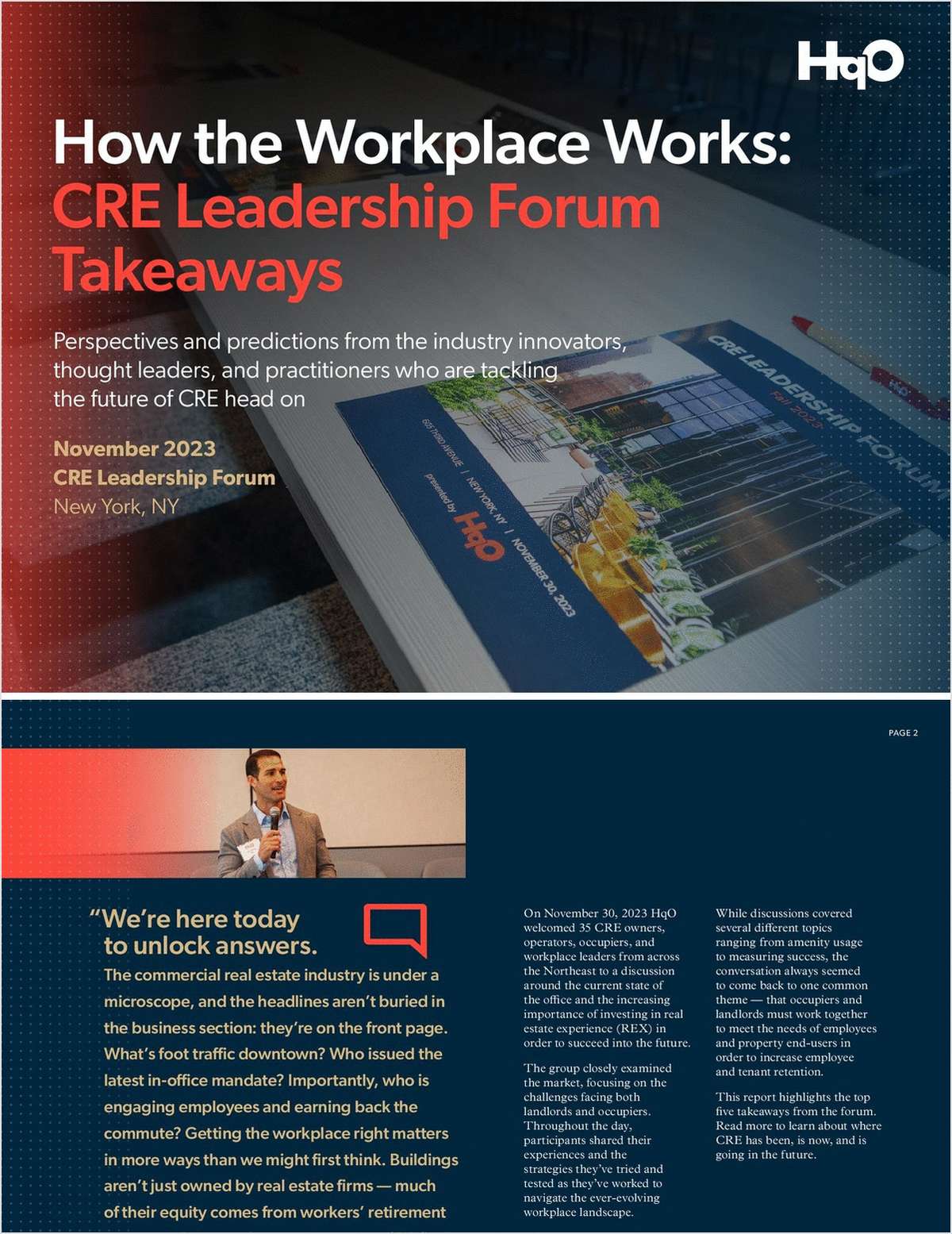NEW YORK CITY – Real estate operators and insurers are trying tokeep up with the quickly evolving cannabis industry as quickly asbills stack in congress for national legalization of cannabis, aswell as changes to jargon crucial to operating their businessescompliantly, according to panelists on a Claims Magazine andGlobeSt.com webinar looking at the insurance and real estateimplications of cannabis-touching companies, "LegalizedCannabis is Big Business." (Click the hyperlink to listen)
|Exposure to government risk is the biggest challenge forcannabis touching companies and as jargon changes to protectmunicipality interests companies have to adapt their operations tomake sure they're in compliance with local and federal law inunderwriting real estate and insurance policy.
|The evolving industry lingo is a challenge for theentrepreneurial groups entering the arena who strive to stayabreast of regulatory requirements, according to Kieran O'Rourke,vice president and director of underwriting at Cannasure InsuranceServices. "The jargon of this industry and space can sometimes leadto some confusion and miscommunication," he said. "We follow themarket we can't control it, it controls us."
|Policy changes month-to-month mean new entrants need insurancebrokers and real estate deal makers who can keep up with rapidchange, especially because coverage is difficult to come by, whichis daunting to a new entrant, according to Steven Sherman, J.D.,vice president of the cannabis risk group at PSA Insurance andFinancial Services. "It's frustrating you cannot get coverage onmarket properties that you would typically get in the marketplace,"he said.
|Cannabis companies and real estate operators face an added setof challenges when securing financing, extending beyond industrylingo important to underwriting a loan. Simply paying for realestate through a bank account could pose a challenge, according toStanley Jutkowitz, senior counsel at Seyfarth Shaw. "Most cannabiscompanies think they cannot bank a cannabis permissible business,"he said. "I've had to negotiate a provision in a lease that thetenant pays through a bank account, which can become a major issuein some cases."
|A majority of banks don't want to lend on cannabis businesses,so it leaves the door open for private lenders, family offices andprivate equity firms to do so, and at a premium because of therisks involved, which adds another layer of legalese to siftthrough. However, added rules are no cause to run, aslong as the borrower is consistently compliant to defined theguidelines, according to Jutkowitz. "If you follow the rules, in myview these risks are more academic than real," he said.
|As the cannabis industry matures overtime, the challengesassociated with legal ambiguity and operations will change. Therough tides are expected because the industry is still in its earlystages, according to Taite McDonald, a partner at Holland Knight."Marijuana and the new development of a commodity crop is thebiggest thing to happen to the USDA and agriculture community sincecorn, she said.
|News headlines and a changing congressional outlook aboutfederal marijuana legalization has led to market sensitivity andvolatility. And while all of this change is taking place, cannabisoperators need the ancillary aspects of federal and local lawironed out on pace with the industry, McDonald said. "This is goingto be an evolving industry that needs to be tracked legally, and ona diligent basis," she said.
Want to continue reading?
Become a Free ALM Digital Reader.
Once you are an ALM Digital Member, you’ll receive:
- Unlimited access to GlobeSt and other free ALM publications
- Access to 15 years of GlobeSt archives
- Your choice of GlobeSt digital newsletters and over 70 others from popular sister publications
- 1 free article* every 30 days across the ALM subscription network
- Exclusive discounts on ALM events and publications
*May exclude premium content
Already have an account? Sign In
© 2024 ALM Global, LLC, All Rights Reserved. Request academic re-use from www.copyright.com. All other uses, submit a request to [email protected]. For more information visit Asset & Logo Licensing.









